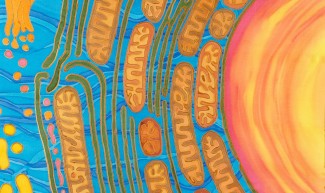MSCopilot, a new multiple sclerosis self-assessment digital solution developed by AdScientiam a startup incubated at iPEPS, has been clinically validated in a clinical trial involving several French hospitals. The results are published in the European Journal of Neurology.
This multicentre, open-label, randomized, controlled, crossover study enrolled 141 PwMS and 76 healthy controls (HCs). All participants performed MSCopilot and MSFC tests at day 0. To assess reproducibility, 46 PwMS performed the same tests at day 30 ± 3. The primary end-point was the validation of MSCopilot versus MSFC for the identification of PwMS against HCs, quantified using the area under the curve (AUC). The main secondary end-point was the correlation of MSCopilot z-scores with MSFC z-scores.
In all, 116 PwMS and 69 HCs were analysed. The primary end-point was achieved: MSCopilot performance was non-inferior to that of MSFC (AUC 0.92 and 0.89 respectively; P = 0.3). MSCopilot and MSFC discriminated PwMS and HCs with 81% and 76% sensitivity and 82% and 88% specificity respectively. Digital and standard test scores were highly correlated (r = 0.81; P < 0.001). The test-retest study demonstrated the good reproducibility of MSCopilot.
This study confirms the reliability of MSCopilot and its usability in clinical practice for the monitoring of MS-related disability.
The MSCopilot application has been presented to neurologists through a video that you can discover below:
Sources
MSCopilot, a new multiple sclerosis self-assessment digital solution: results of a comparative study versus standard tests.
Maillart E, Labauge P, Cohen M, Maarouf A, Vukusic S, Donzé C, Gallien P, De Sèze J, Bourre B, Moreau T, Louapre C, Mayran P, Bieuvelet S, Vallée M, Bertillot F, Klaeylé L, Argoud AL, Zinaï S, Tourbah A. Eur J Neurol. 2019 Sep 20.







